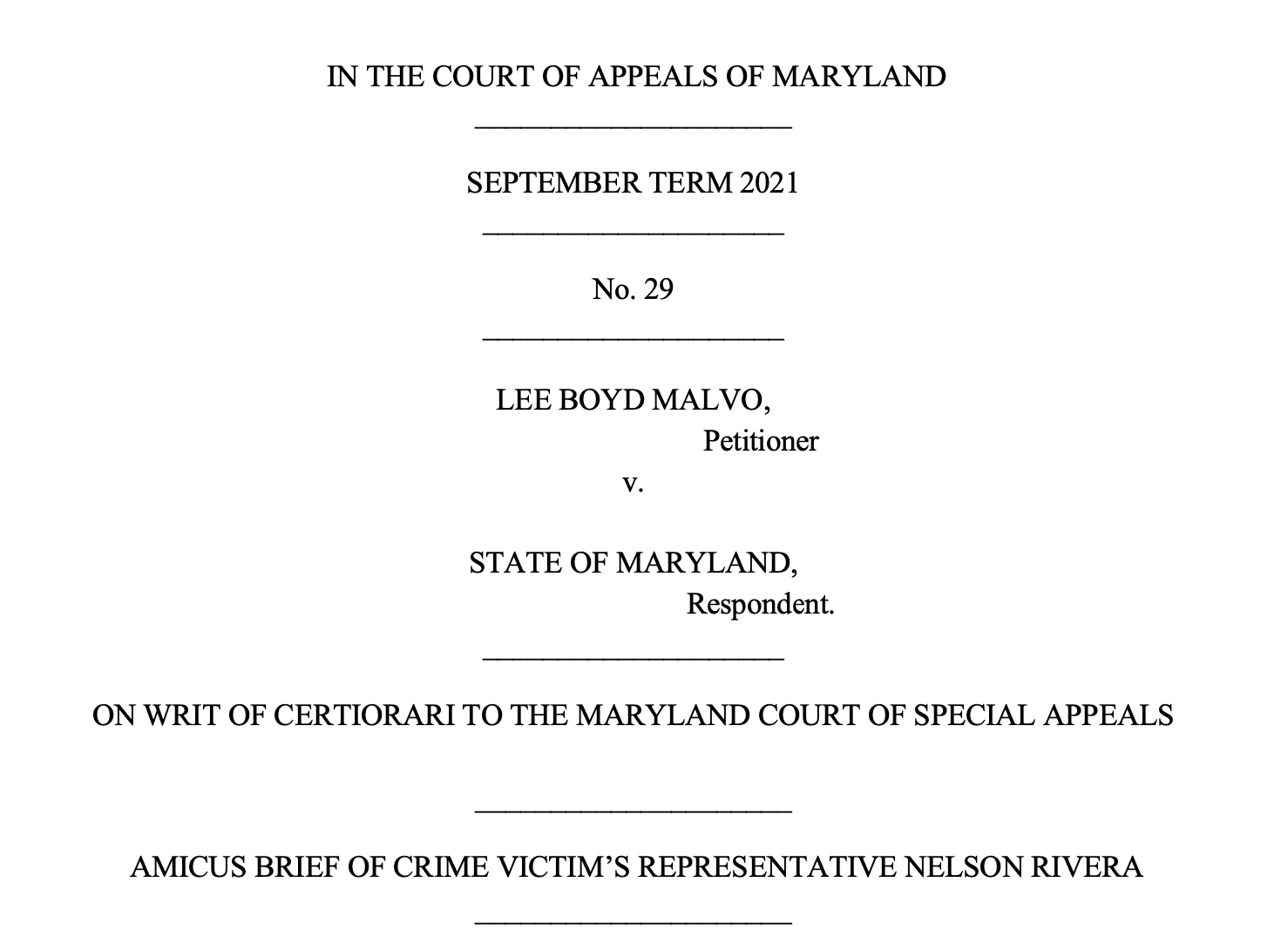
Summary of Argument
Crime victim Lori Ann Lewis-Rivera was one of six Maryland strangers murdered by Malvo and his codefendant, John Muhammed. She was the wife of Amicus Nelson Rivera, the victim’s representative, and the mother of their then six-year-old daughter. Lori Ann’s murder devastated the lives of her husband and her daughter, whose family life ended forever. Her survivors moved out of their residence to try to recover their privacy and to be spared some of the daily heartache from this tragedy. The victim’s daughter’s life since then—her childhood, her preteen and teen years, her young adulthood—passed without her mother’s love, praise, and guidance. These victim losses and Md. Code, Crim. Proc. (CP) §7-105 (victim’s rights during post-conviction proceedings), CP §11-503 (same), and Rule 4-345(e)(2)&(3) (same) trigger the victim representative’s rights guaranteed by Article 47 of the Maryland Declaration of Rights.
Malvo acknowledged the ongoing damage he caused his victims when, at his sentencing, he accepted “full and unmitigated responsibility...without excuse...without blaming other people” (E.125), i.e., not his codefendant nor his friends or relatives, for “what I’ve done to the families and friends” of the murdered victims (E.126). He stated, “I know that I destroyed many dreams and many more lives, and that each of you relive this every morning, every birthday, every anniversary, every time you look in your children’s eyes. You relive it...every day. I also think of the pain and loss I have inflicted on them...and the pain this absence and emptiness causes a child” (E.126). Malvo made that statement, accepting full responsibility for his actions, in support of his request that his six sentences all be imposed concurrent to each other and concurrent to his Virginia sentences, thereby adding no days of incarceration for his six Maryland murders (E.123). At that time, Malvo’s defense team, which had been preapproved by his current counsel (E.124), asked the court to consider Malvo’s “efforts to cooperate and aid families in closure...not only in this jurisdiction...[but also] to bring closure to the family in Arizona” (E.122). Now Malvo seeks a new sentencing hearing that is contrary to and undermines his prior efforts to provide closure for his victims’ families.